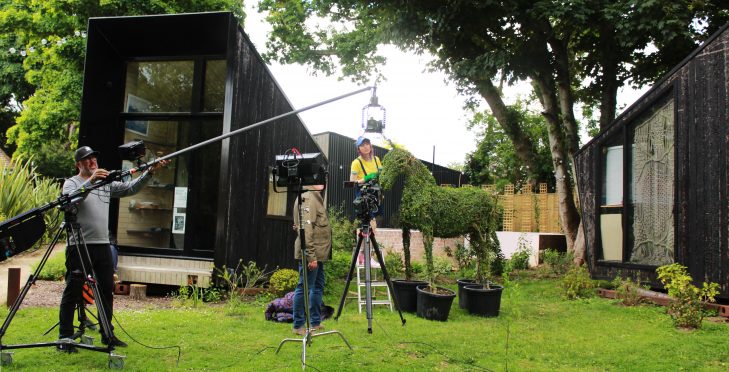 Behind the scenes of an ITV production....
Behind the scenes of an ITV production....
Agrumi helped by providing a topiary New Forest Pony for the filming of a children's comedy arts and crafts show called 'Makeaway Takeaway'.
Bec Hill, who presents the show, always takes on a big creation at the end of each show. This time she was taking on a pony, a familiar sight in our area of the New Forest.
Firstly, we created a pony shaped framework and planted up several trees and bushes inside, to hide the frame from view.
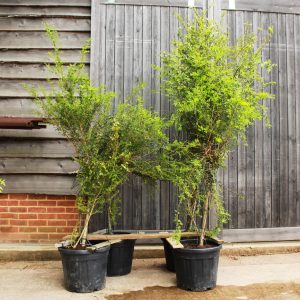
Then this was taken to the filming location, just down the road in Sway. A local arts charity, spudWORKS, provided their premises for the day’s filming.
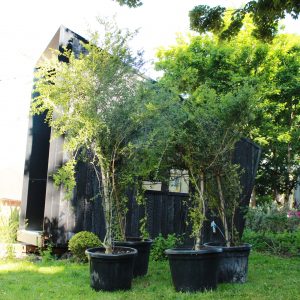
Our topiary artist started work turning the plants into the form of the pony (while the cameras were off) , and Bec copied his technique for the filming shots.
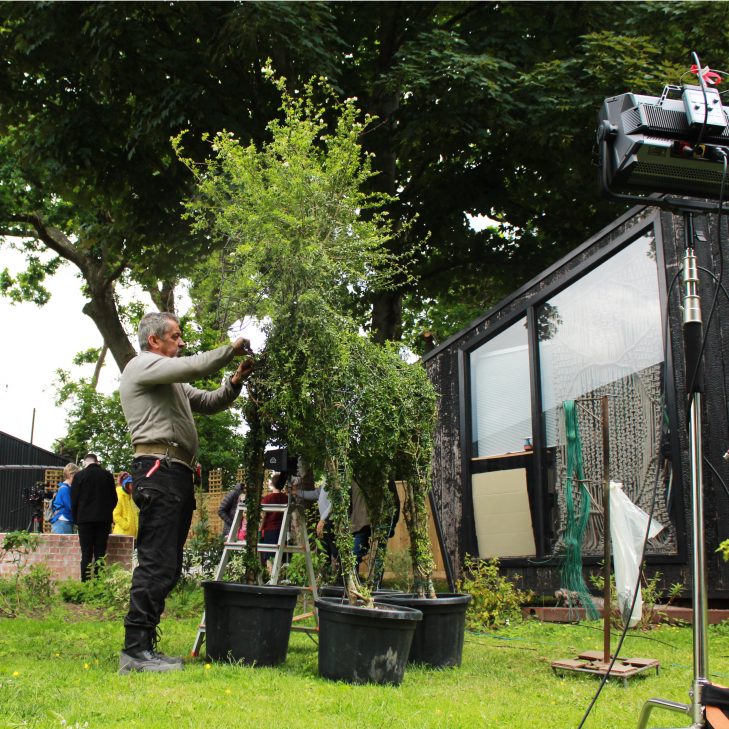
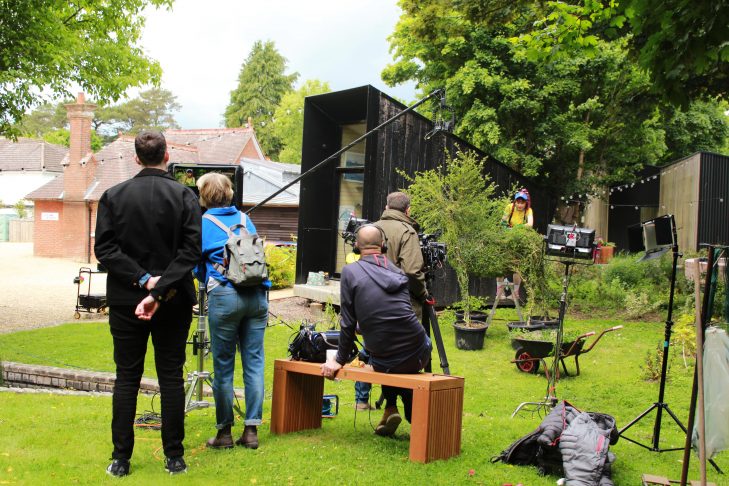
Slowly, but surely, the Pony shape came to life...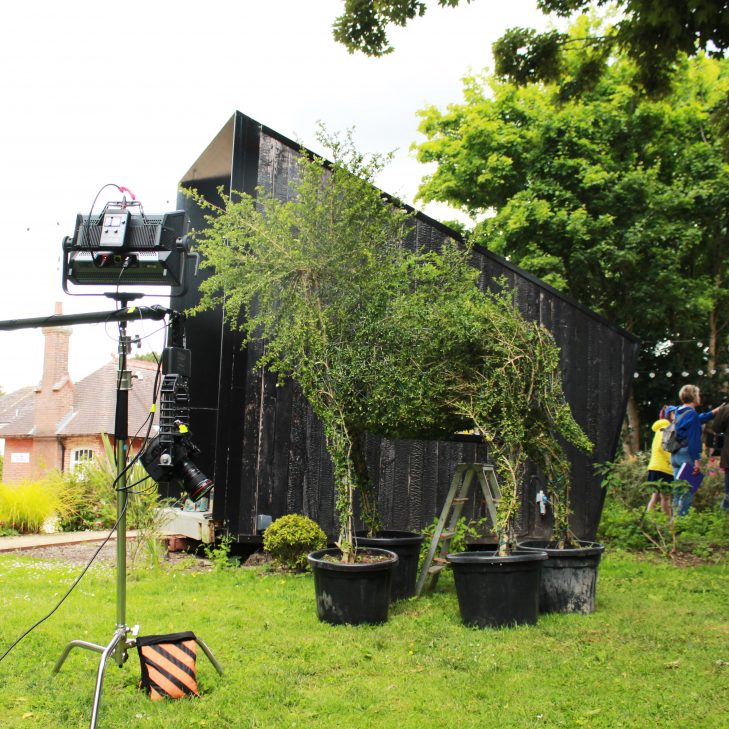

Lots of the local community came to help out, including children from the local school who helped create the floral necklace that embellished the pony at the end of filming.
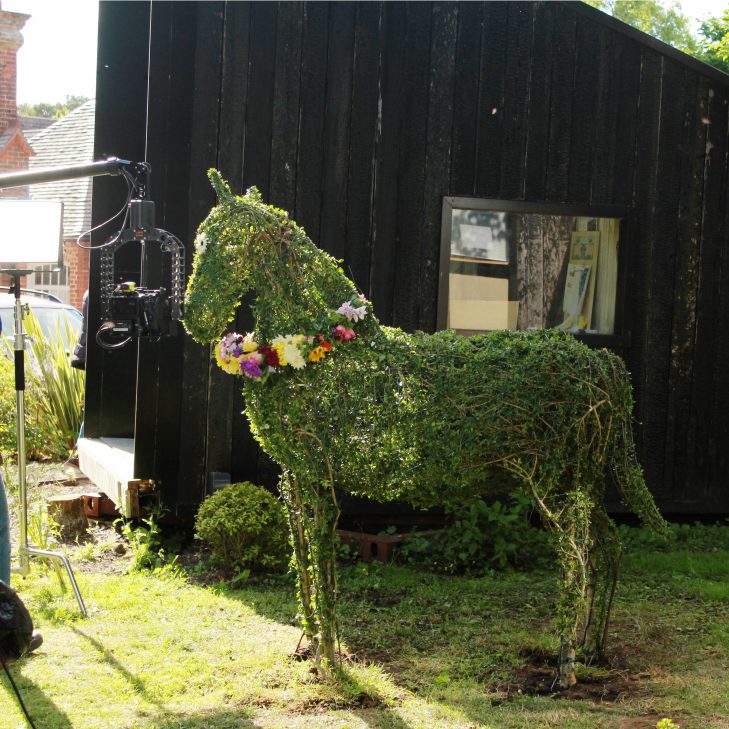

It was a joy to be part of such a great project!
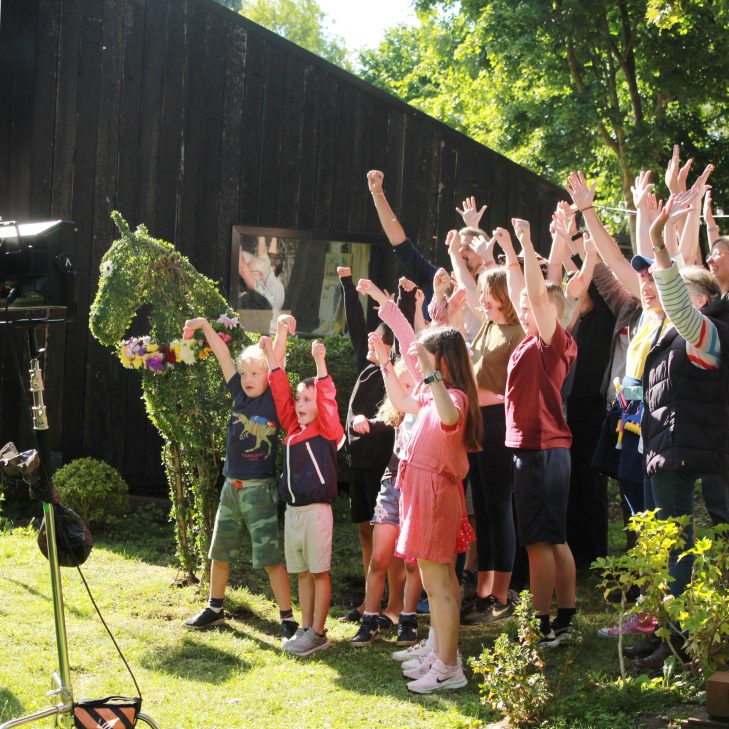
You can watch this epsode of Makeaway Takeaway called 'Unbe-Leaf-Able' on ITVX.

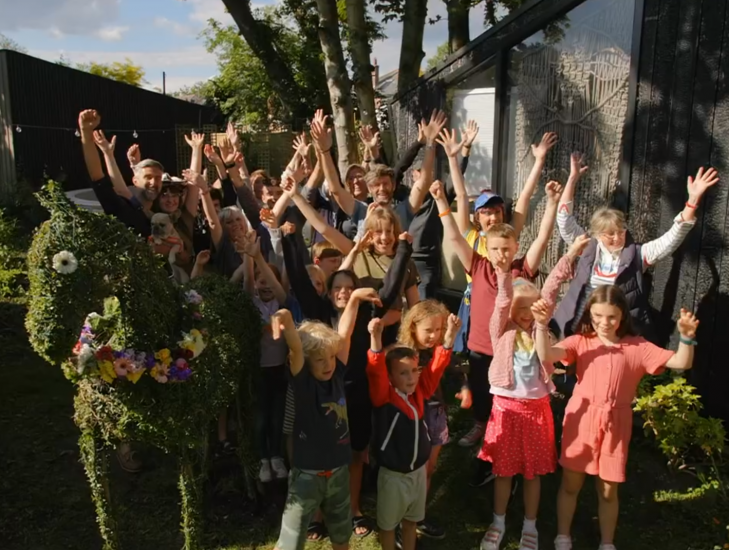

Drusillas Park, the best zoo in South East England, approached Agrumi with the idea of some sculptures, up to 10 feet tall, to be created for a new roundabout. The roundabout is right next to the zoo and the layout was designed so it looks like the animals are all walking towards the zoo.
We were more than happy to take on this project, a joint effort between Drusillas Park, Alfriston School and National Highways.

All the sculptures had to be ‘road safe’, which meant creating the pieces from soft metal rods. This was a new experience for us, but we were up for the challenge!
The ‘D’ shape was the most complicated design to produce , as it was about 3.5m tall! We had to make sure that it was stable and completely safe on the roadside.
There are a collection of animals around the ‘D’: three Meerkats, a King Penguin and a Lemur. All of which can be found in real life at the zoo itself.
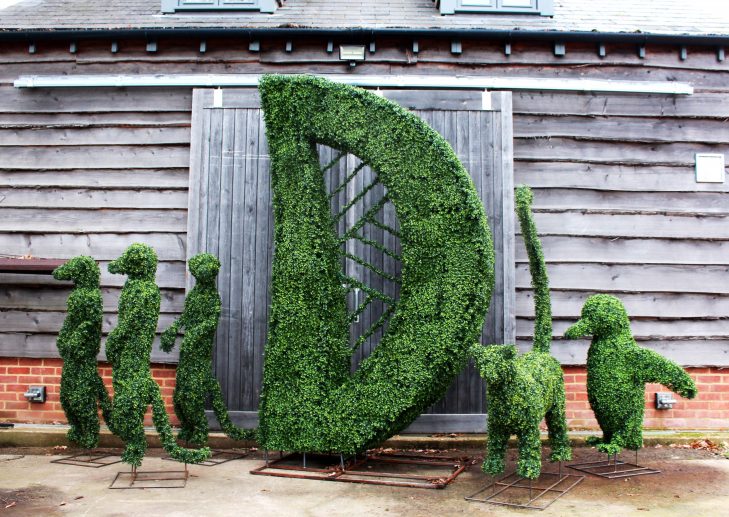
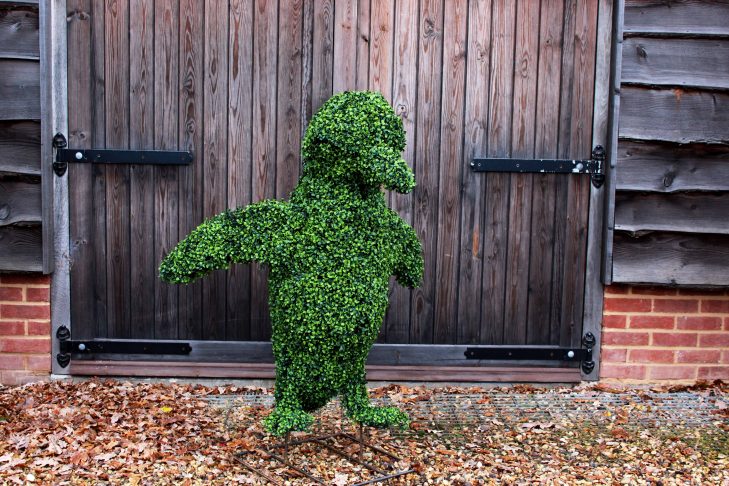
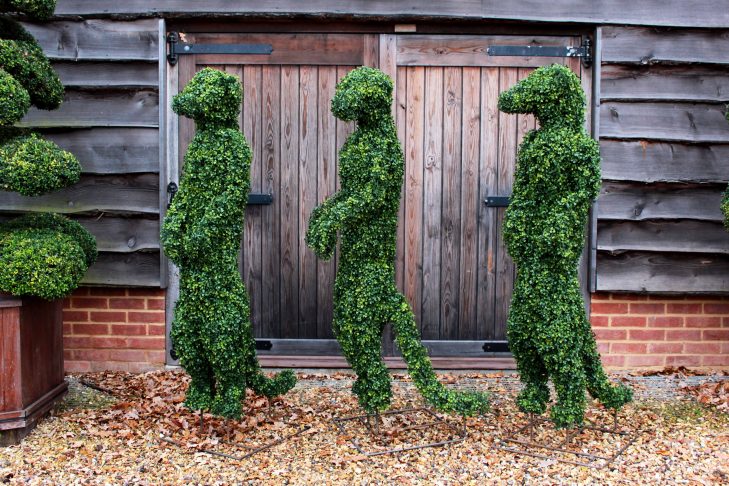
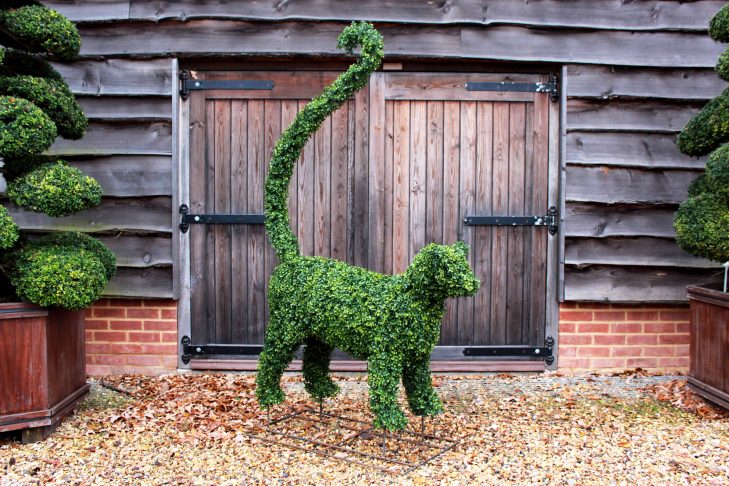
Agrumi brought to life the designs, initially created by children from Alfriston School. A number of the children’s design submissions depicted animals from the Park, which inspired Drusillas’ final design.

The project was a collaborative effort, also involving National Highways, who installed the sculpture on the public roundabout.
National Highways route manager for the south east Peter Phillips, said:
“This green sculpture is a glowing example of how a topiary like this can improve the local spaces of people living and working near our roads.
Hopefully it will also inspire generations to come.”

Drusillas Park said:
“Our new fabulous roundabout sculpture feature is finally in place, and we love it!
Local school children from Alfriston School inspired the design behind our new topiary lemurs, penguins and meerkats that now proudly sit at the Drusillas roundabout.
Read more on the project here.
Next time you're driving by, be sure to give our topiary animals a wave ”
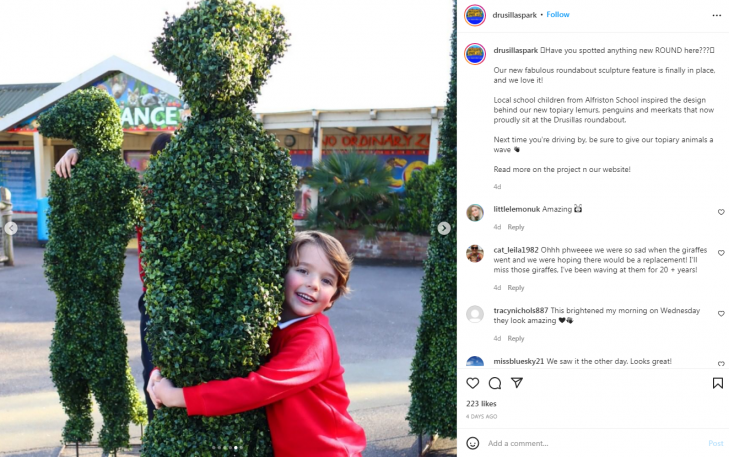
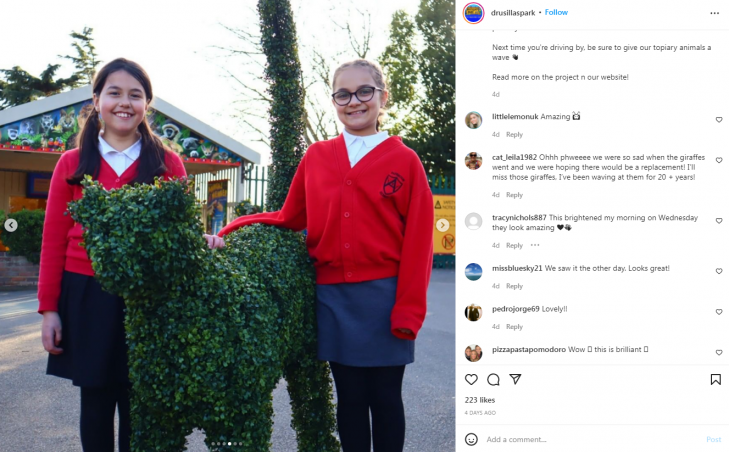


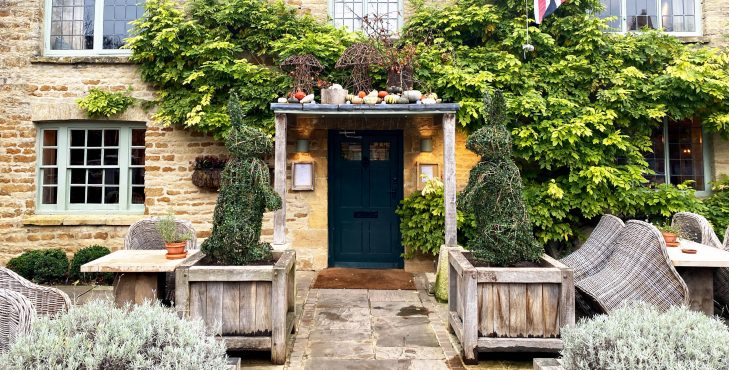
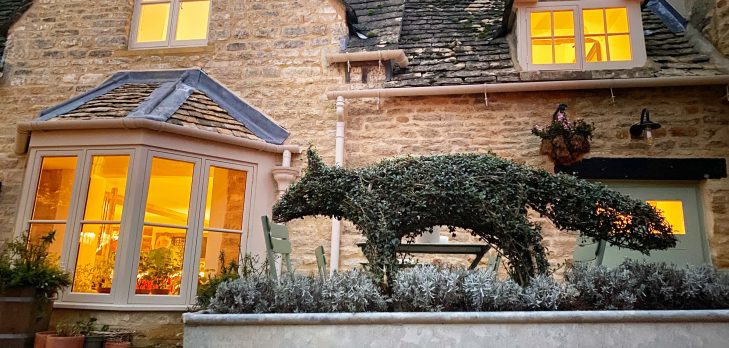
The Wild Rabbit and The Fox are both part of the Daylesford estate – one of the most sustainable organic farms in the UK.
Agrumi has a close relationship with Daylesford and was more than happy to create a few custom topiary pieces to adorn their Inns.

Firstly, a threesome of living topiary foxes were created - each with a unique pose: alert, leaping and sitting.
They are displayed in 3 different areas around 'The Fox' Inn, to create interest at the front entrance, garden steps and bar window.
The inns were both restored using locally sourced natural materials and centuries old techniques, creating a long-lasting environment with minimum impact to the surroundings. They used reclaimed timber, with roof insulation made with sheep’s wool from their organic farm and turned their own cattle hides into leather for the pub’s seating. The aim is to leave the lightest imprint on our planet while creating unique spaces filled with warmth and character.
Sustainability is a key value for Daylesford, which is why they choose to use living plant topiary in their designs. This approach not only adds natural beauty and life to the Inns, but it is also environmentally friendly as the plants continue to grow and thrive over time. By using living topiary, Agrumi and Daylesford are showing their commitment to preserving the environment and promoting sustainable practices in their work.
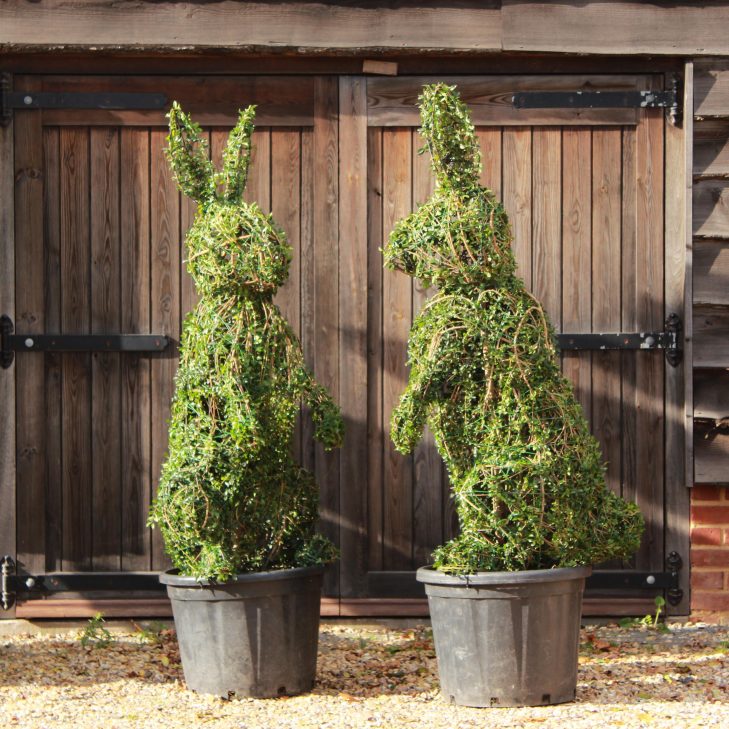
More recently, a pair of living topiary rabbits was created for another inn: 'The Wild Rabbit'.
The name is a nod to its original title: Conygree Farm – an Anglo Saxon word meaning rabbit enclosure. More recently it was the Tollgate Inn; a building constructed in Cotswolds stone with beautiful proportions, known for its convivial atmosphere and unusual double fireplace.
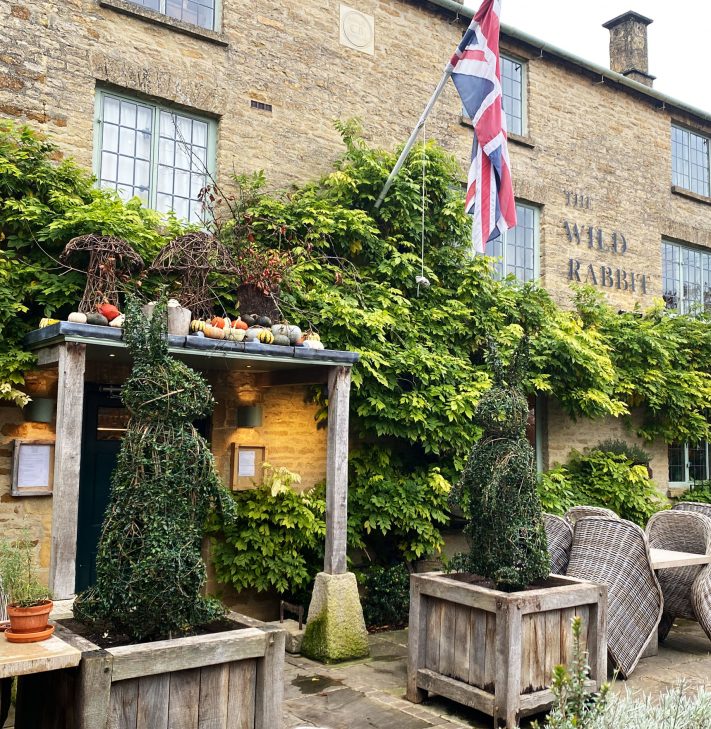
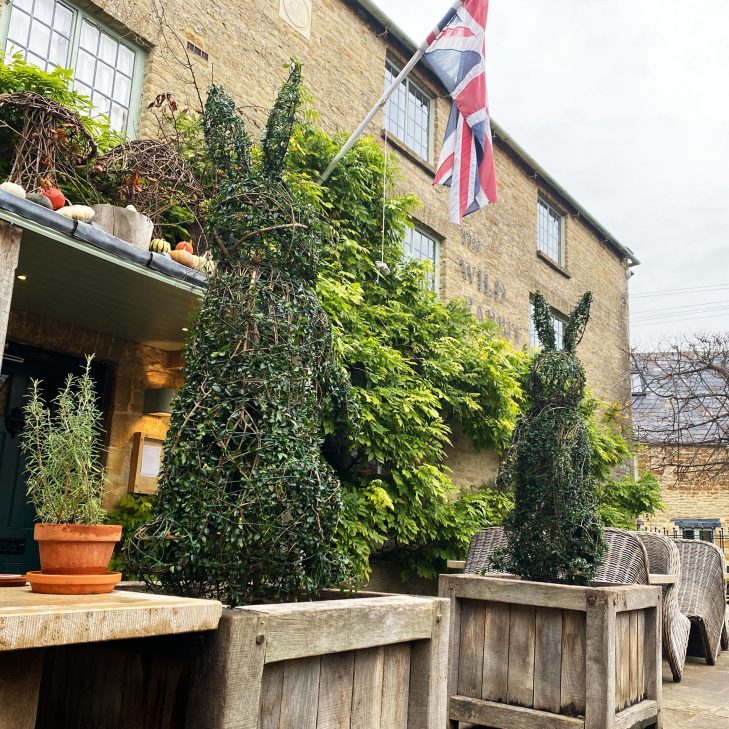
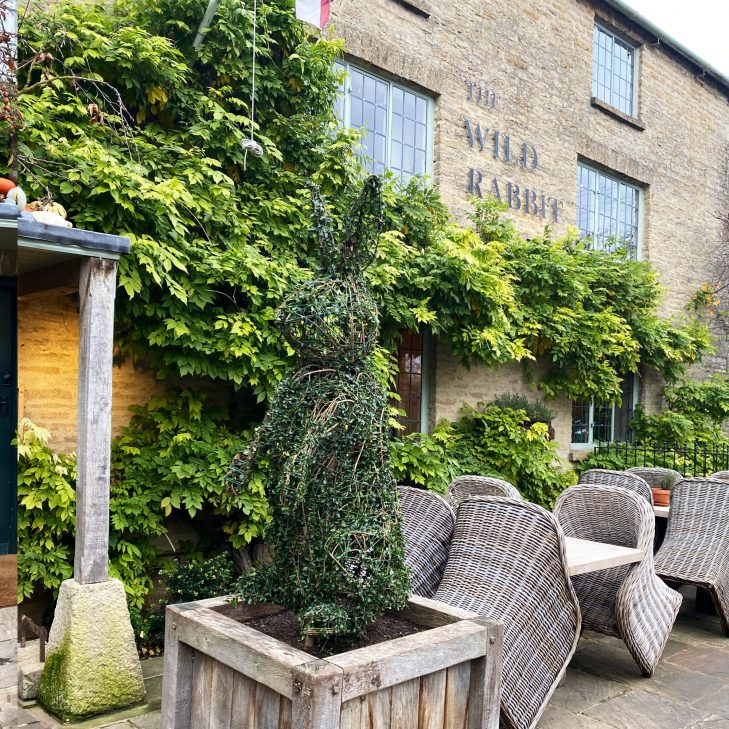
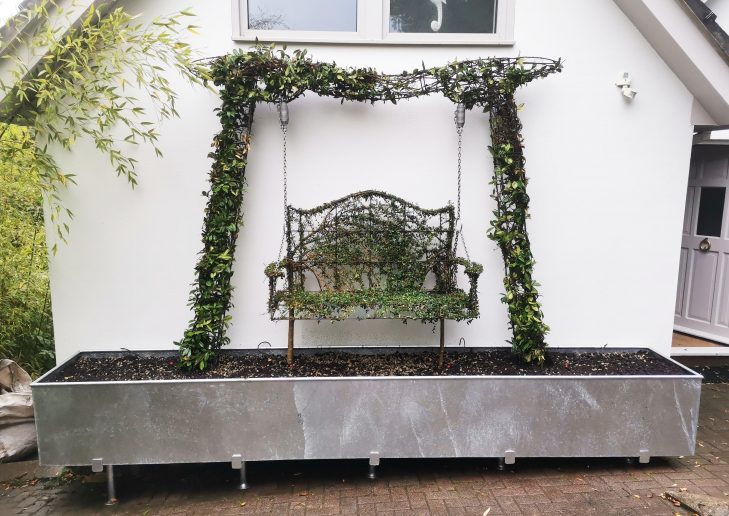
“Sitting Spiritually” is a Dorset based manufacturer of quality wooden swing seats. They are the only bespoke swing seat maker endorsed by the Royal Horticultural Society.
Their headquarters are located down a country road and they wanted a statement piece of topiary out front, so that customers could easily find them.

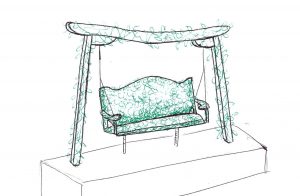
We designed a topiary version of their favourite swing seat design: the Kyokusen , which is Japanese for “Curves in the air”. The seat’s design draws upon the curves and flow of the Torii, a traditional Japanese gate most commonly found at the entrance of a shrine.

The stand’s shape was adapted to fit into their custom made planter, and covered in star Jasmine plants. In the summer the stand will be covered in white flowers, which will create a wonderful scent.
The seat was covered in Ligustrum plants, which is traditionally our favourite topiary plant. It’s evergreen and has little leaves, perfect for design details.
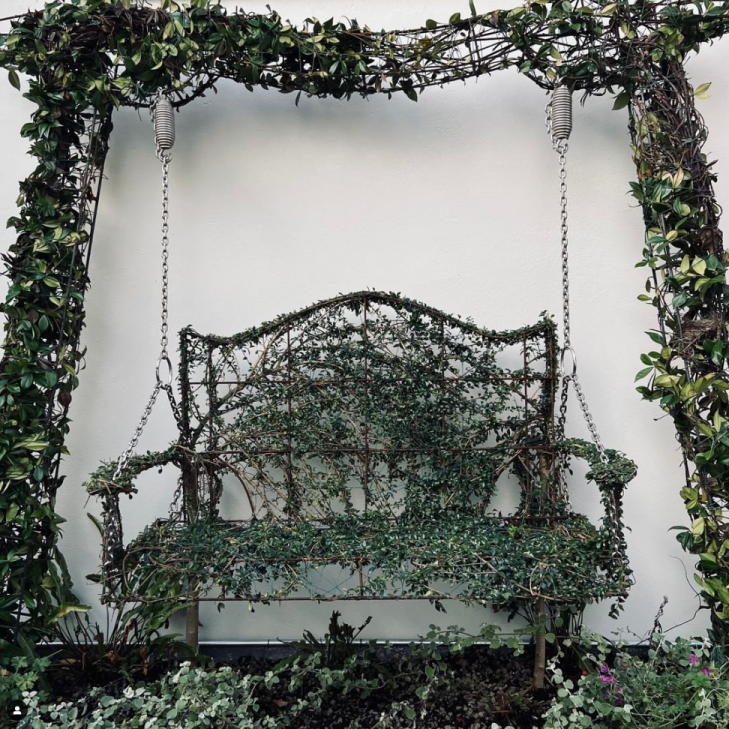
We installed the topiary into their planter at their Lyme Regis HQ, ensuring that the planter and compost had sufficient drainage.
Sitting Spiritually said about the topiary sculpture:
“TA-DAA
Check out our latest installation at Sitting Spiritually HQ!
There's no missing us now!”
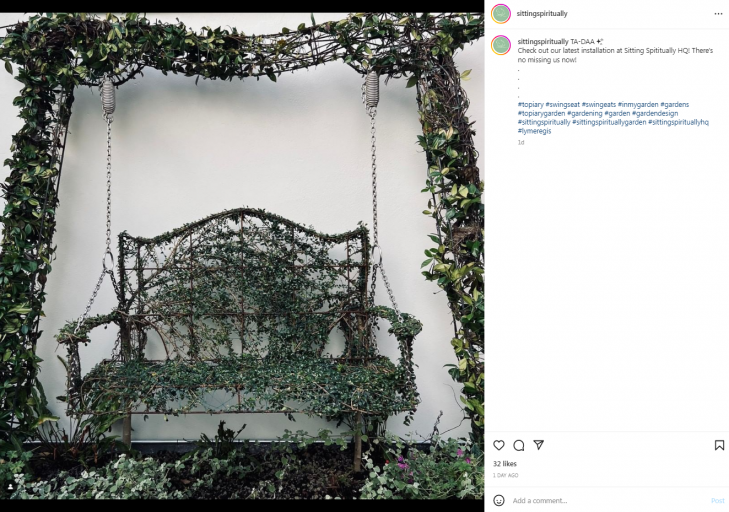
Could your business benefit from some topiary sculptures? Just get in touch!
The Manchester Flower Festival is an integral part of this exciting city, many important landmarks and streets are enhanced with blooming flowers and vibrant colours.
The festival is always popular in Manchester, even more so with it being the first big event of 2021… and it didn’t disappoint!
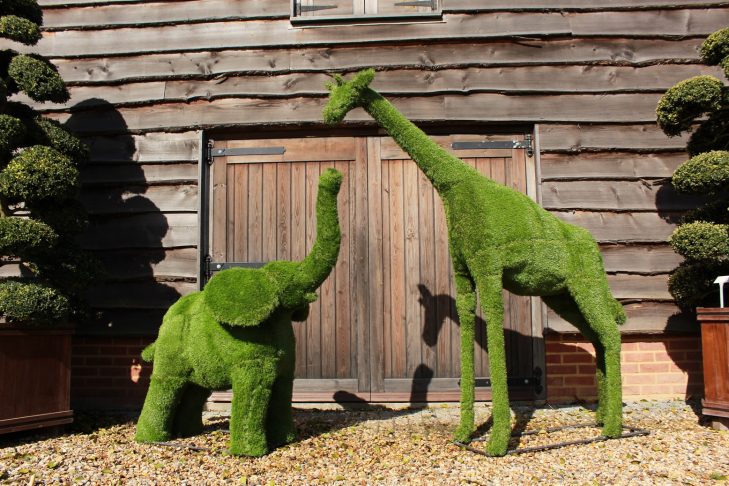
Agrumi designed and created an artificial baby giraffe and elephant to be placed in Angel Meadow Park. The topiary were within budget, required no maintenance and provided an Instagramable opportunity for visitors to the event.

The pictures that were shared on social media platforms were a huge hit and really became a stand out feature within the city.
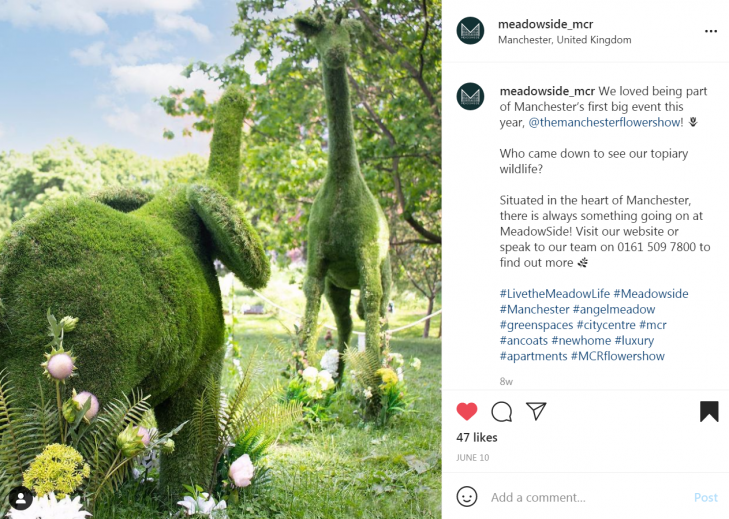
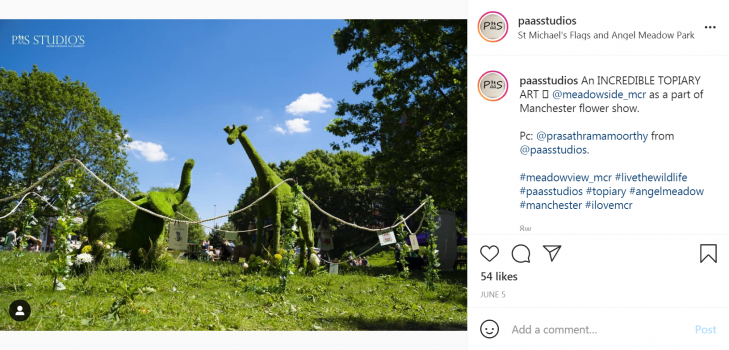
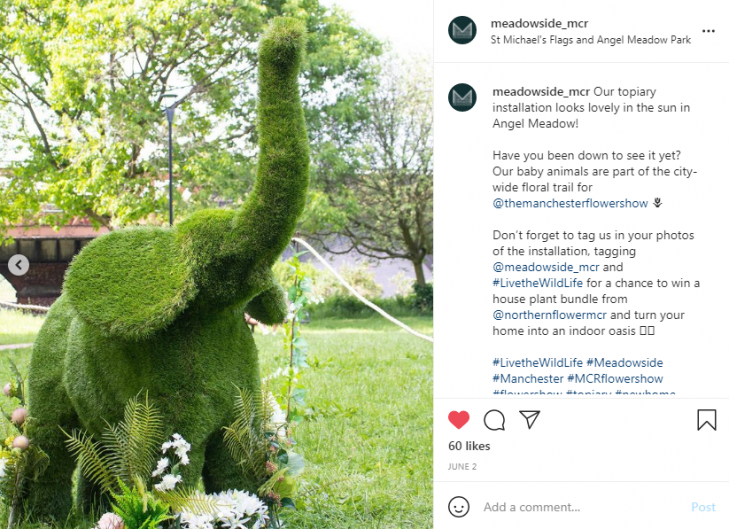
We at Agrumi love to be part of such events and create topiary features that stand out for others to enjoy.
Could your town benefit from some topiary sculptures? Just get in touch!
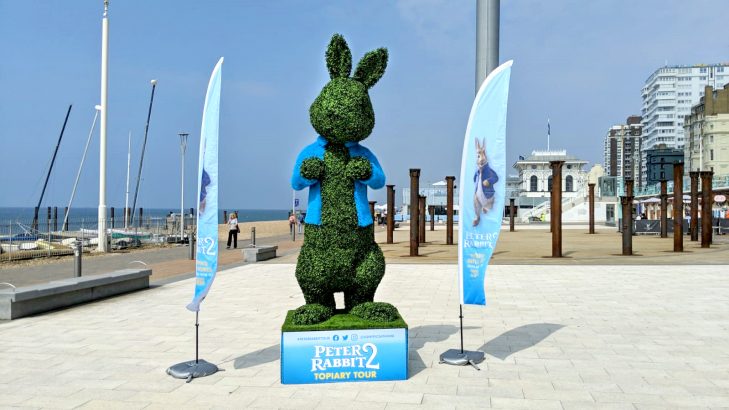
Agrumi were thrilled to be asked to support Linney – the creative production specialists in marketing- with their launch of Peter Rabbit's topiary tour at the start of the summer holidays, ready for the film’s release.
The promotion of the feature involved creating a 3 metre tall rabbit in a similar pose from the film, made from artificial boxwood for the body and specially ordered light blue artificial grass for Peter’s denim shirt jacket on top of a green base.

It was crucial that the sculpture was able to be moved around multiple locations including Manchester’s Trafford Centre, the Bullring in Birmingham, London’s Olympic park and Brighton beach. The base was specifically designed with a compartment for weights, meaning they could be easily removed when travelling and weighted down once in place, for security.
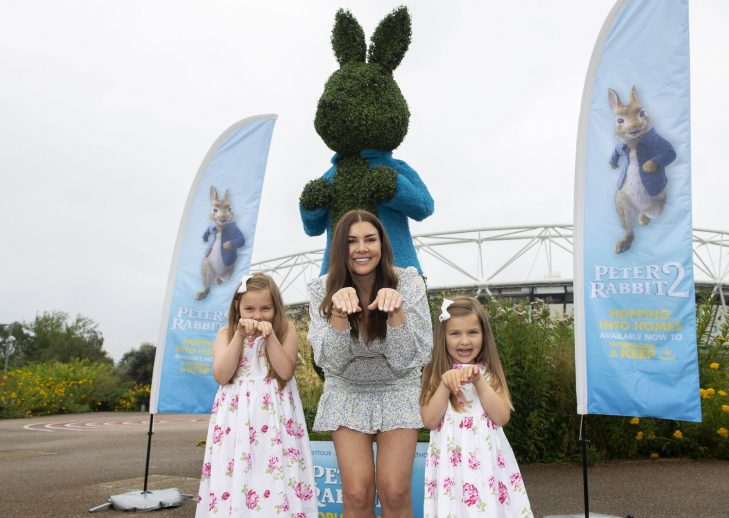
Topiary Peter proved extremely popular for families to take photos including stars of the film and celebrities such as Imogen Thomas, who posed with her daughters at Queen Elizabeth Olympic Park, recreating his cheeky pose!
Could you promote your upcoming event with some topiary sculptures? Just get in touch!
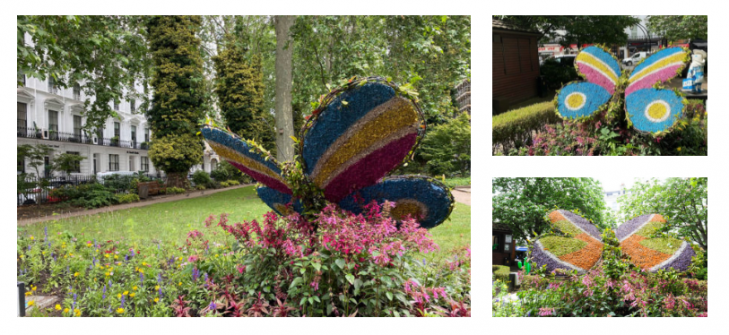
With the importance of butterflies and our environment being so prevalent, Agrumi were delighted to be asked to help Paddington’s Business Improvement District (Paddington Now) with their plans to create a butterfly friendly garden in Norfolk Square.

Agrumi made 2 large butterfly sculptures for the garden project, which not only are bright and beautiful, but they also help to attract pollinators. The body and wings are wrapped in Star Jasmine plants; their fragrant white flowers are rich in nectar, which is ideal for lots of bees and butterflies.
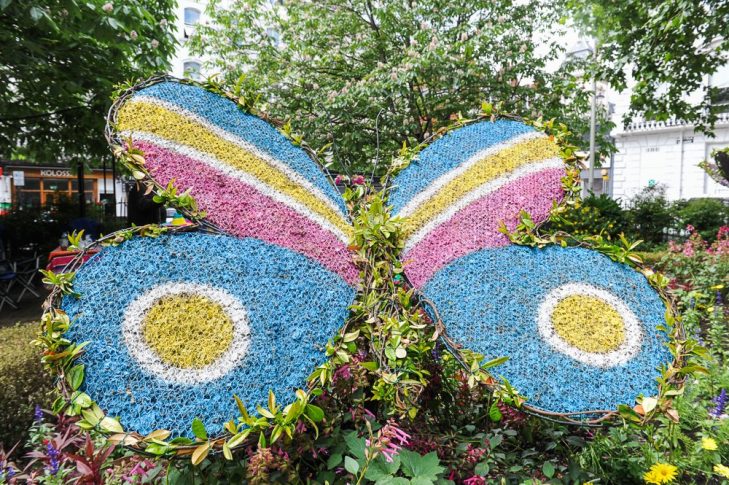
The wings of the butterflies were created with coloured dry moss. Agrumi produced the wing formations stuffed with dry moss and added the paint in the two colour schemes that the BID selected. We think the colours on the butterflies look great together and hope that visitors to the garden agree!
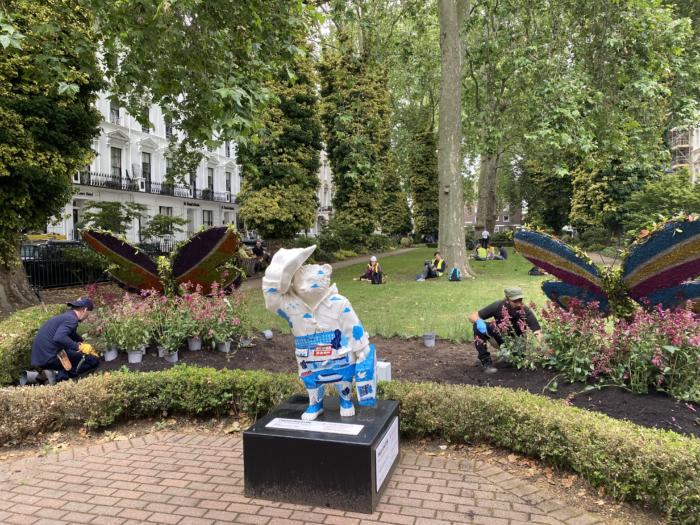
The BID is working with ‘Big City Butterflies’ to encourage more butterflies into the area and will monitor the numbers over the coming years. It has brought about a butterfly count in the garden during July and August 2021, as part of the Butterfly’s Conservation initiative.

You can read more about the entire Norfolk Square Butterfly garden project here
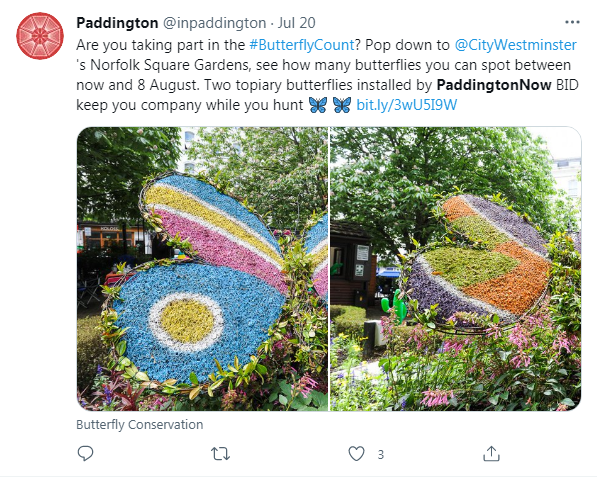
Could your town’s BID benefit from any topiary sculptures? Just get in touch!
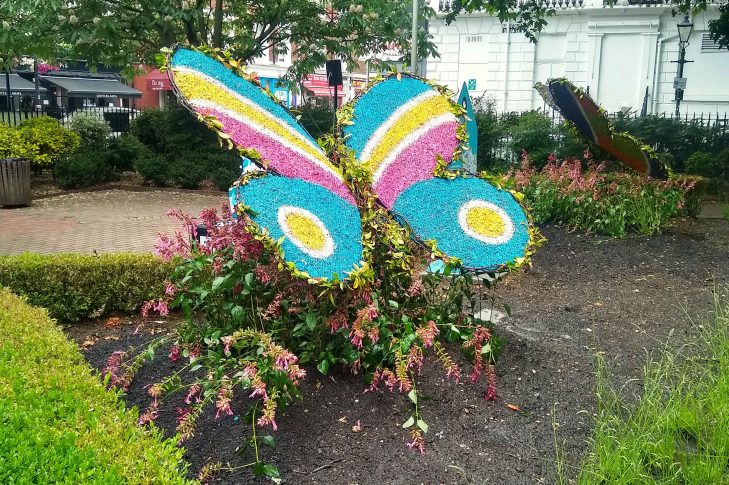

Agrumi have created a metal sculptures range created especially by their head topiary artist, Luigi Frosini. These mainly include British animals such as Roe deer, Sheep, Hares and Pigs. Inspired by the natural world around him, Luigi endeavours to create lifelike animal sculptures.
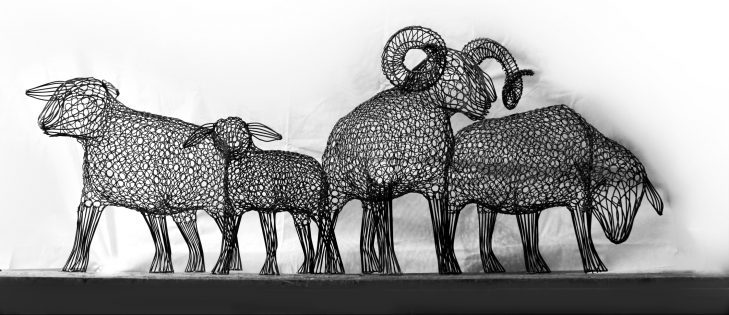
A while ago, Burford Art Gallery approached Agrumi about making a Metal Horse for a display. (Burford Art Gallery is part of Burford Garden company, an Oxfordshire based Garden shop. They ‘love things that are a little different', so we think we’re a great match!)
This enquiry soon evolved into a series of regular orders of animal sculptures, and now Agrumi has an entire range based on these Metal Animal Sculptures by Luigi Frosini.

Having worked closely with nature, Luigi can create realistic 3D forms made of steel, whilst capturing the personality of each animal and character perfectly.
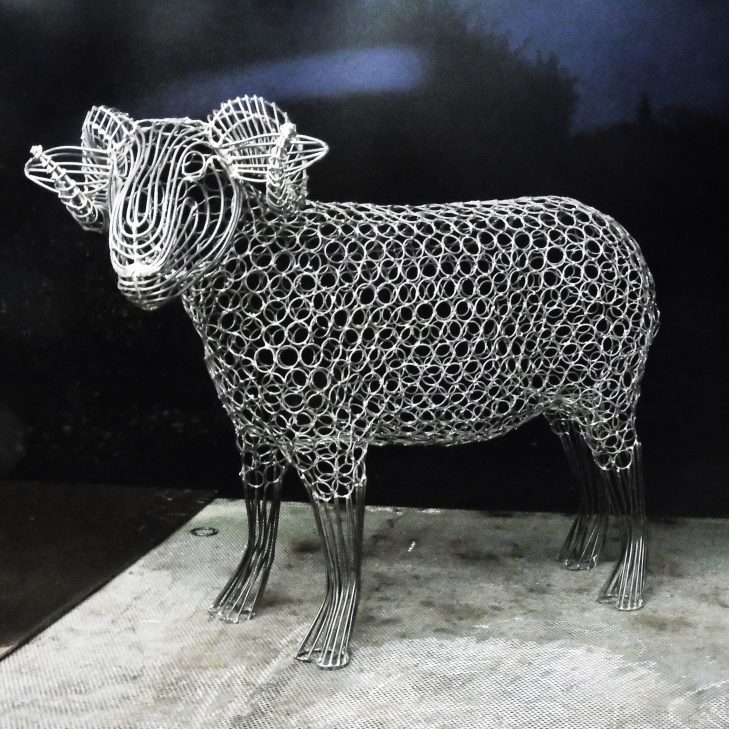
These are made from annealed steel wire, which naturally turns a rusty brown colour when left outside. We are able to add a lacquer coating, or paint to the sculpture, to help prevent oxidisation, if you prefer this finish.
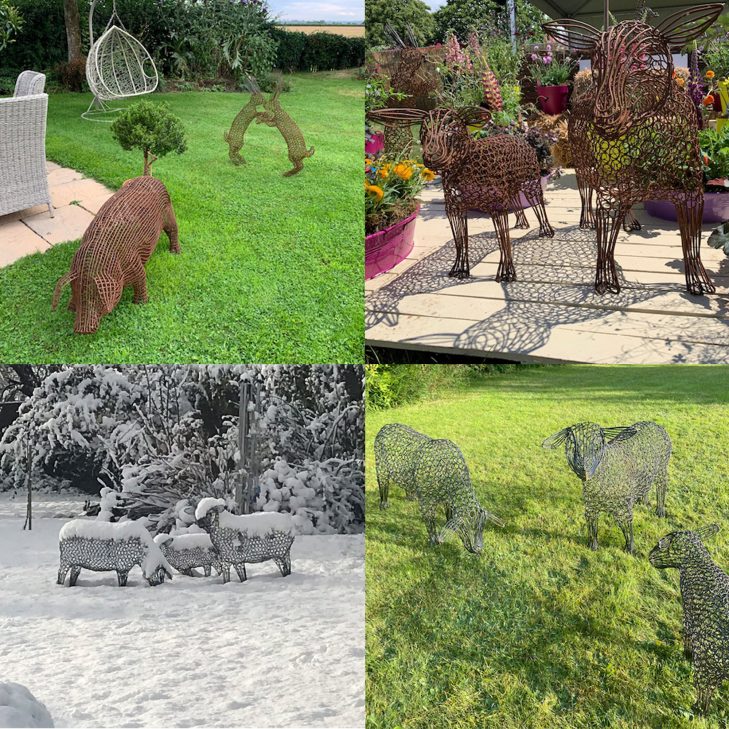
A selection of these was exhibited at The Chelsea Flower Show 2021, as part of Agrumi’s New Forest exhibition stand.
These are all available to buy from Burford Art Gallery, we can take commisions for custom orders, or you can buy them online from our webshop TopTopiary.
Agrumi were approached by Apex Graphics, an exhibition design company company, to create a topiary logo for their client.
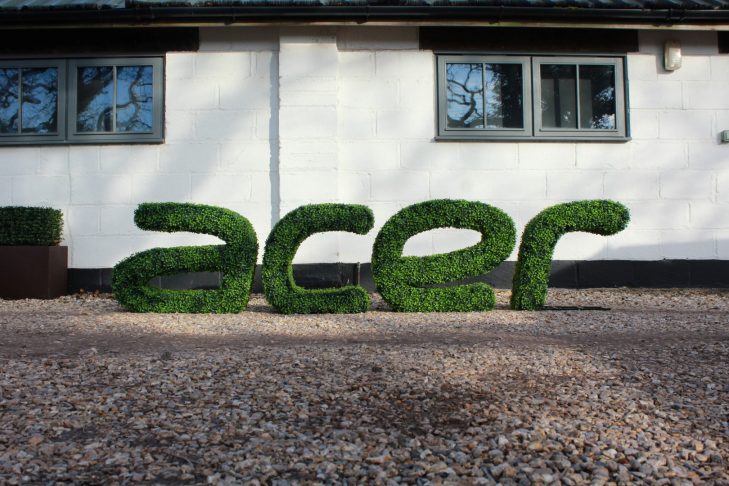
Their client was Acer, the computer IT company, who required their logo recreated in topiary for an event.
We recommended the artificial topiary options, as these are great for events and shows. It means you can move the topiary around easily; they don’t require any watering and are lightweight and durable.
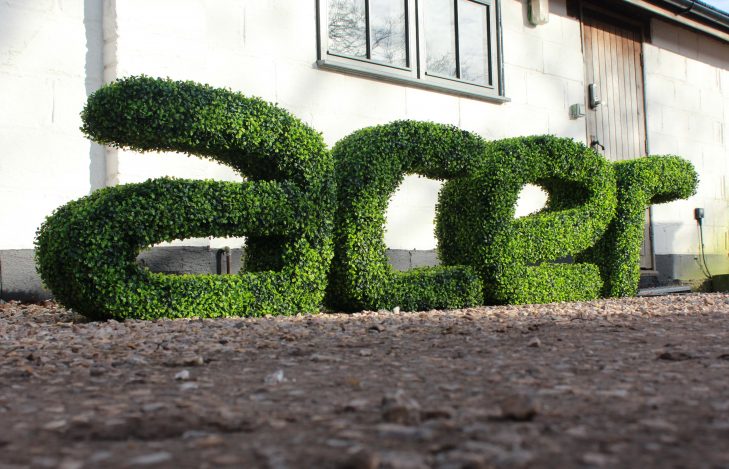
They went for four 60cm high freestanding letters, which can be moved around individually, covered in artificial boxwood. This material creates the effect of a boxwood hedge, with a complete covering of artificial leaves.
Could your company or event benefit from a topiary logo? Contact us for a chat!